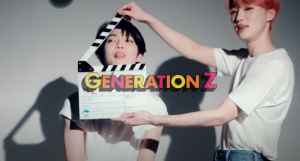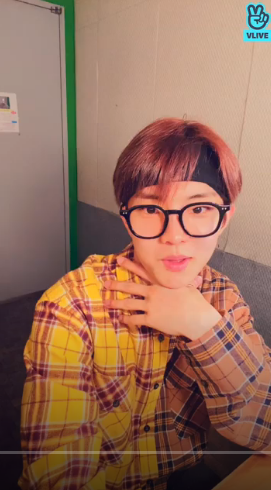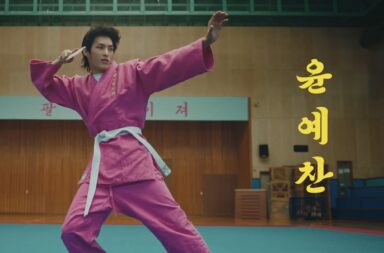
In a recent comeback of sorts (though they didn’t promote and release music as the term typically implies), The Boyz released a series of identity films called Generation Z that allow fans a glimpse into the undisclosed aspects of the boys’ personalities. These short films show the members’ personalities that are not apparent from their normal personas in front of a camera or onstage. The first video released features all the members, individually, in a variety of concepts while discussing how their personalities do and sometimes do not align with how they believe they are often perceived by those around them. Some have colorful sets, bad boy concepts, or simple backdrops. Each concept is vastly different, but all seem to be implying that what you see on air is not always the full reality or feelings within.
At first glance, each boy is portrayed as a sexy secret to unfold, despite the vastly different concepts of their individual shots. Such a portrayal is engaging visually, but when used as a marketing ploy rather than a true revealing of aspects of their personalities, the concept can actively work to seemingly mask the true feelings of the members. It can make them seem more distant rather than honest.
However, the group shot at the end sports a more boy next door image. The members are seen laughing and chatting naturally in simple clothing and accessories. Rather than a shot that seems posed to mirror their inner Id, this shot is portrayed like a personal conversation between close friends literally overlaid with the words, “We wanna be honest in our voice.” This gives the image that the boys are approachable, relatable, and honest rather than a two-dimensional persona, whether that is entirely true or not. The videos are obviously produced and edited by their company, but through the imagery, the subsequent individual films, and the behind cut, The Boyz showcase what truly does seem to be each member showing news sides by speaking from the heart.
With more groups in the mainstream and an increasingly global listenership, K-pop as a genre continues to rapidly evolve musically and conceptually. As a relatively new genre that draws upon various global stylings, listeners and researchers alike have pointed out that there are only so many concepts that can be revolutionized or invented. Yet, the increasing pursuit of emotional intimacy and widespread appeal to fans remains unchanged. A group’s concept tends to set them apart from their predecessors and give them a unique voice to make them stand out from the crowd.
In recent years, the desire to shine has resulted in more and more artists opening up their daily lives, and moving toward a rawer concept that allows them to be more candid on camera rather than conforming to a more deliberate, pre-planned personal concept, or that is what fans are made to believe. There are a variety of reasons for this, but most of them seem to fall within one or more main reasons: a chance to test new concepts for marketing, emotional intimacy between fans and artists, or emotional and psychological freedom for the well-being of artists themselves.

As talked about in Kim Suk Young’s book K-pop Live: Fans, Idols, and Multimedia Performance, perceived social intimacy is something that has become increasingly pivotal in the success of newer artists. It is no longer enough to just have engaging music and mysterious stage personas. As K-pop continues to grow and evolve, including an ever-massive global viewership, more fans are seeking relatable figures with engaging messages as well as quality music to consume. These identity films are a step in this direction, but by making them deliberate, The Boyz express that authentic representations of their full personalities are a priority. As a whole, this trend of opening up artists’ personal lives to the public serves three main purposes: marketing, fan appeal (or intimacy), and the well-being of the artist themselves. Providing artists the chance for personal autonomy, the shift towards more honest representations reduce personal strain on artists to uphold an image they might not necessarily identify with.
With this being said, stage personas are not inherently bad. For some artists, an on-stage persona is carefully crafted and deliberate, allowing them to separate their public life from their private one. In a profession that is often constantly thrust into the spotlight, this blanket can be a comfort, but often only when it is deliberate and by choice. When created by outside influence without the wishes of an artist, these personas can be stifling and constricting. In the case of The Boyz, allowing themselves to be genuine on camera allows them to release and express emotions that they do not have to keep hidden.
There are other programs like this one that have tried to present this boy (or girl) next door image in order to humanize celebrities. Most fall into either one or a combination of three main categories: lives (unplanned and/or spontaneous), programs or films produced by idols’ companies (often planned and edited in favor of artist), or programs produced externally from an idol company (i.e. variety shows).

Live broadcasts that are facilitated by artists themselves, often on V Live, often offer glimpses into their lives that would otherwise go unseen. This can either be conversations with viewers, responses to comments, mukbang, listen or watch parties, or spontaneous mini live concerts.
These broadcasts can be problematic because artists are not always closely monitored by their managers and companies, and on a live, they could obviously make missteps in conversing or answering fan questions. Such mistakes have gotten a few artists into deep water with the public or their companies, but overall, lives provide fans the chance to interact in real time (but safely) with artists no matter where they are in the world. This interaction can be powerful and create deeper connections with fans.
Reality shows produced by or for idols’ companies present a different set of challenges. Similar to the identity films from The Boyz, self-produced content provides the chance for producers to create new content, but in a more controlled setting. While actions and reactions can be candid, the environment, activities, and editing are often closely controlled by the producers and entertainment companies. Although these shows can present authentic content from artists, it is still possible to cater and market it to viewers for specific purposes. Some recent idol variety shows are Run BTS, Twice TV, 2NE1 TV, and Monsta X-Ray. These shows not only show idols interacting with children, playing games, or performing live, but also reveal their weaknesses and the grueling reality of being an idol.
Ever popular variety and competition shows such as Running Man, Good Girl (a new hip hop competition show for women), and The Return of Superman often get up close and personal, and frequently feature idol guests. In the case of shows like The Return of Superman and Running Man, idols are placed in situations by producers and then observed more often than they are prompted. Guests are often known to be funny and personable already, but not always.
Shows such as Good Girl on the other hand allow more autonomy for artists to create music and perform, often for the purpose of showing new capabilities and concepts. In some cases, idols can even purposefully invent and reinvent themselves through these contents, like in the case of Jamie or Ailee on Good Girl. Ailee is well known for not only her original releases, but a wide breadth of OSTs as well. In Good Girl she showcases a more sexy, charismatic side in her early performances. Jamie (also known as Jimin Park) has stated that she wishes to deliberately shed her old identity and be known as Jamie, while also performing more strong concepts on the show.
The Boyz’s identity films are kind of like a hybrid between a live and idol reality show content. The individual videos especially are portrayed as filmed by other members rather than a professional film crew. The member answering the questions seems to genuinely consider the question before giving an answer, rather than reading from a script of eloquently and purposefully crafted responses. The questions given are different for each member, and seem to be based on some of the sentiments expressed in the first film featuring all the members. Some of them like Kevin and Q go so far as to talk about their relationship with happiness, sadness, and depression. It is a raw discourse with fans about the struggles and secret parts of their lives. Rather than a set of games, live events, and so on, like in normal reality show content, these identity films are intensely personal.
While the industry continues to grow and change, it seems clear that more deliberate moves to humanize idols and make them appear more relatable rather than other-wordly are coming. This is due in part to increased popularity as well as sociocultural shifts. Also, with more and more artists entering the public eye, it seems that fan interaction and intimacy continue to be driving forces for idol content. I, for one, hope we begin seeing more deliberate content of this kind that opens dialogues with not only our inner personalities, but personal struggles with mental health, physical health, and the grueling reality that idol life often is. A producer from SBS said it well with, “Fans don’t want to see their stars all dressed up and made up any more, they want to see someone friendly who seems like they could live next door.”
(YouTube[1][2][3][4], South China Morning Post, K-pop Live: Fans, Idols, and Multimedia Performance by Kim Suk Young, Korean Masculinities and Transcultural Consumption: Yonsama, Rain, Oldboy, K-Pop Idols by Sun Jung. Images via Cre.ker Entertainment)


